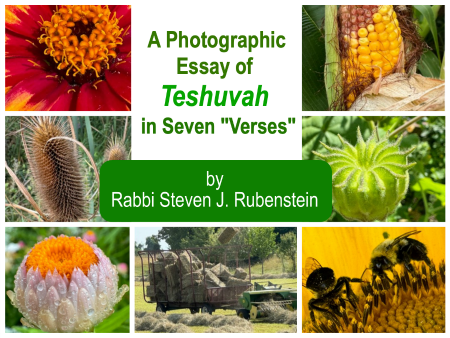Earth Etude for Elul 25
by Rabbi Steven J. Rubenstein, BCC

- God said, “Let there be vegetation of all kinds to create a sense of awe and wonder in my creatures and let them be stewards over this garden of beauty, protecting it and preserving it as a legacy for future generations.”
- And humans harvested from the bounty of the land, but they did not follow God’s commandment over the decades, destroying the land for their personal gain, taking more than they were entitled to in the same way that they took extra manna in a previous generation.
- The earth became dried and arid in response to God’s anger.
- The people of the earth repented. They did teshuvah, asking God to restore the earth so that they could rediscover the awe and the wonder that once was a part of their world.
- Before God heard their cries of teshuvah, tears from the face of God fell upon the earth, covering the flowers and the fauna that had not been hurt by humankind.
- In time, God did what the humans of the earth asked of their Creator, and they were able to harvest the fields that fed them and their livestock.
- Soon, the bees returned to pollinate the flowers that spread sunshine to the world, reminding humankind what it means to orient themselves to the sun and the moon, as God had created them, teaching us how to be grateful for all that God offers us as the world is created anew each day.
Rabbi Steven J. Rubenstein, BCC ~ Director of Spiritual Care at the Jewish Home, Rochester, New York; author of “In the BIG-inning: A Rabbi’s Collection Inning by Inning” available through Diamond Dan Publications; and a newly ordained Zayde.
